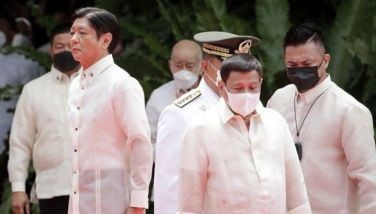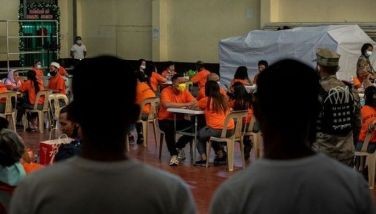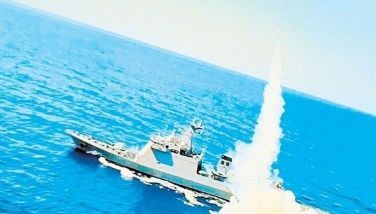US cites Japan’s increased contacts with Indo-Pacific nations
MANILA, Philippines — The US has cited Japan’s increased contacts with the Philippines, South Korea and Australia and working with the partners in the region, as Tokyo takes leadership roles in protecting global security.
“Japan is growing and taking leadership roles that not only benefit people in the Indo-Pacific, but the global community,” said Grace Park, director for Japan policy at the US Defense Department’s Indo-Pacific Security Affairs Office, during the “Japan in the Year 2024” symposium at Washington-based nonpartisan think tank Wilson Center on Friday.
Japan, the fourth largest economy in the world, has taken a greater security role in the past decade, Park said.
“Japanese leaders are reorganizing the self-defense forces in the country, fielding new military capabilities, increasing the amount spent on self-defense and more. I believe that the United States has gained a lot from this alliance relationship,” she said.
Park said it is tough to speak of the security environment without including the effects of the economy, diplomacy and monetary policy and more.
For the Defense Department, Park noted the alliance involves three pillars: modernizing roles and missions and capabilities of the alliance, optimizing force posture within the region and the multilateral networking of alliances, and applying these pillars to the challenges in the world is key.
“We’ve got Russia’s aggression against Ukraine, we’ve got the Red Sea… (North Korean) provocations and, of course, the aggressive course of behavior of the (Chinese) in the East China Sea, the South China Sea, as well as the Taiwan Strait,” Park said. “In thinking through all of these networked security environments… they’re all interconnected. There’s not very much an artificial line between economic coercion versus military coercion.”
She said it is a testament to Japanese leaders that they are thinking through strategic messaging and “through the continuity of the international rules-based order.”
Japanese leaders have agreed to increase its national defense budget to two percent of gross domestic product, doubling the amount dedicated to self-defense.
“Japan is working with partners in the region as well with increased contacts between Japan and South Korea, and Australia and the Philippines,” Park added.
Two areas in particular are in intelligence, surveillance and reconnaissance capabilities (ISR) and in maritime domain awareness (MDA).
“For us, it’s really speaking to Japan’s capabilities and desire to be hands-on with their approach in contributing to peace and stability in the region,” Park said, noting that the MDA and ISR capabilities are not just for the self-defense of Japan but to “enhance awareness and also stability throughout the East China Sea, South China Sea region.”
The Philippines, US and Japan vowed to strengthen trilateral efforts in defense and security capabilities to “maintain a free and open maritime order.”
National Security Advisor Jake Sullivan of the US, National Security Advisor Akiba Takeo of Japan, and National Security Advisor Eduardo Año held a trilateral phone call in December to “reaffirm their commitment to freedom of navigation and international law in the South China Sea and East China Sea and the fundamental importance of maintaining peace and stability in the Indo-Pacific.”
They expressed their concerns about China’s “dangerous and unlawful” actions in the West Philippine Sea as they called on Beijing to abide by the legally binding July 2016 Arbitral Tribunal ruling and desist from further provocative behavior.
Sullivan reaffirmed Washington’s ironclad alliance commitments to both Japan and the Philippines.
The three NSAs underscored the importance of enhancing trilateral cooperation, and committed to continue implementing the initiatives they discussed at their June meeting, including trilateral efforts to enhance defense and security capabilities; maintain a free and open maritime order, and a free and equitable economic order.
The three NSAs reaffirmed their decision to conduct close trilateral coordination over the coming months to advance their shared interests in a free and open Indo-Pacific.
- Latest
- Trending




























